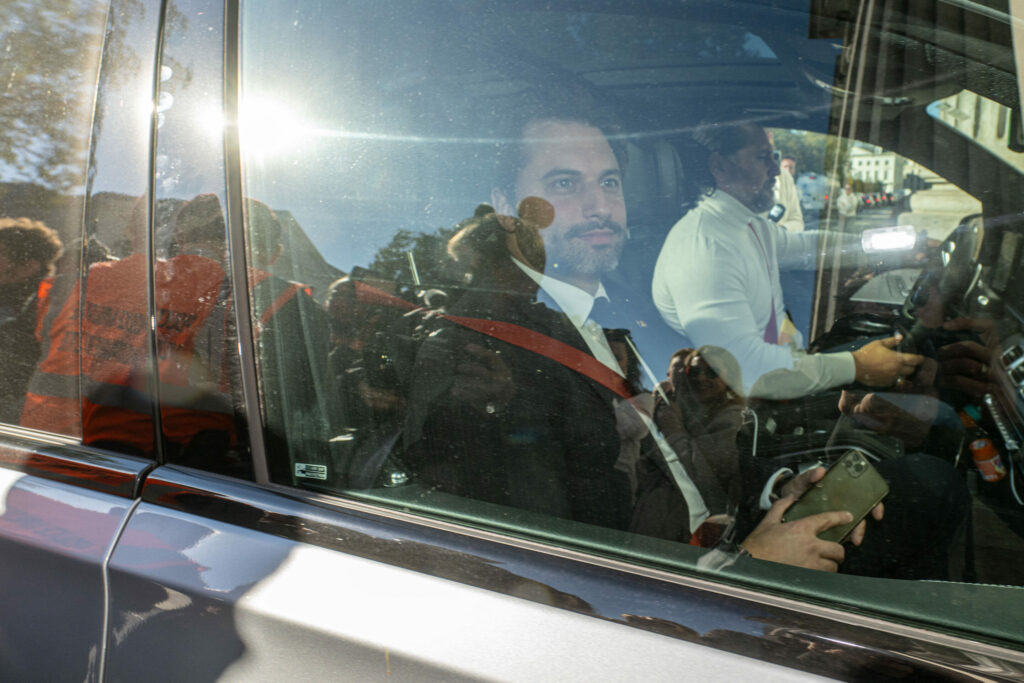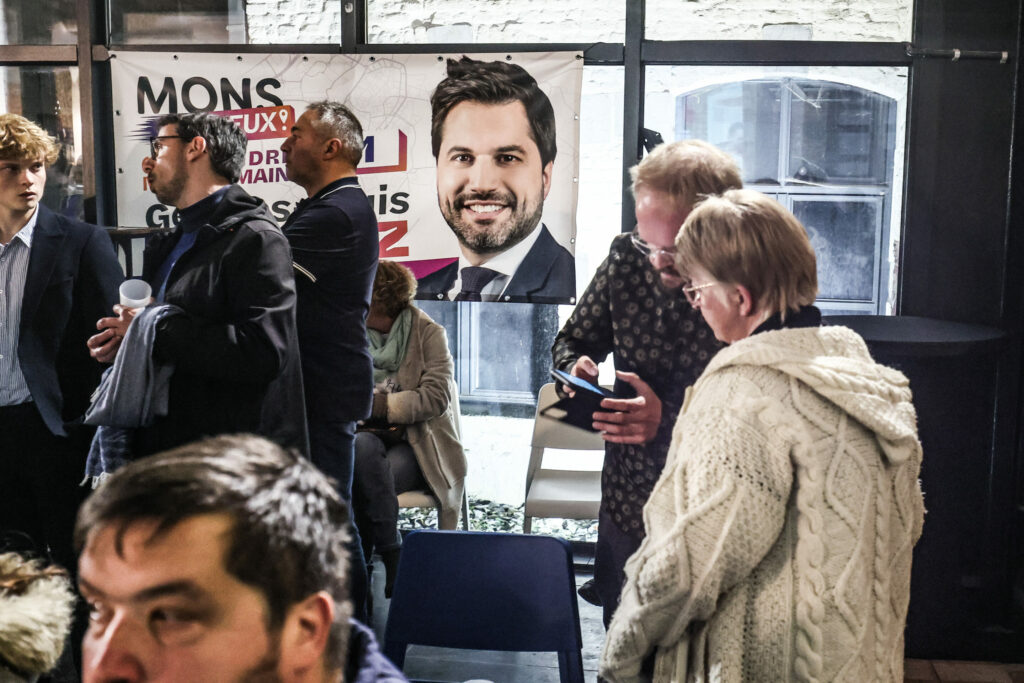The leader of the Francophone liberal MR party Georges-Louis Bouchez threatened that the decision to bring the radical left-wing Belgian Workers Party (PTB-PVDA) into power in Forest will have "consequences" for the formation of the stalled Brussels-Capital Region Government.
One month after the local elections, the Brussels municipality Forest announced a coalition between the Socialist Party (PS), PTB-PVDA and French-speaking greens Ecolo for the municipal council – an alliance that Bouchez called "a double denial of democracy" on BX1.
He pointed out that the MR-DéFI list won the most votes (25.8%, 10 seats) during the local elections and should therefore not be sidelined. The PS-Vooruit list won nine seats, while Ecolo-Groen and PTB-PVDA both have eight. Les Engagés has two seats.
As the winners, the MR-DéFI list had the 'right of initiative' to first start talks to form a coalition, but did not succeed within the two allotted weeks. The PS-Vooruit list was second in line to initiate negotiations and managed to find the current coalition. Together, the PS-PTB-Ecolo alliance holds 25 out of 37 municipal council seats – a comfortable majority.
No cordon on the left
Bouchez (who does not live in Forest, but in the Walloon city of Mons) deplored the coalition with the radical left.
Last week, a similar situation occurred in his hometown Mons (Hainaut province), where PTB-PVDA formed a coalition with the same two allies. There, Bouchez's Mons en Mieux list, which became the second-largest party, was also left out.
"People are always very hostile towards the far-right, but when it comes to the far-left, we find a whole series of arrangements. Communism represents tens of millions of deaths in history, but some people seem to have forgotten that."
However, ULB professor Emilie Van Haute spoke to BX1 on Wednesday to clarify Bouchez's attempts at drawing an equivalence between the Belgian Workers' Party and far-right parties such as Vlaams Belang.
"This is a debate that MR is trying to conduct by putting it on the same footing as the far-right cordon sanitaire. This cordon sanitaire does not exist in reality," Van Haute told BX1. She explains that there is a consensus among political scientists that the PTB is "anti-system" but is also a "democratic party that does not have the same anti-democratic as the far right."
'Consequences' for Brussels negotiations
Either way, MR say PS' choices could have "consequences" for the Brussels-Capital Region Government negotiations, where MR are in a strong position. He did not, however, specify what these consequences would be.
"In Mons, [PS] are in coalition with the PTB. But in Liège, they signed an agreement with MR saying that if they joined forces with PTB there, the coalition would explode and PS would be relegated to the opposition. The next day, they signed an agreement with the PTB in Forest," Bouchez said.

MR leader Georges-Louis Bouchez arrives for government negotiations. Credit: Belga/Jonas Roosens
"From one geographical area to another, PS choose partners à la carte and according to their electoral interests. After [the coalition agreement in] Mons – there was the consequence of Liège. There will now also be consequences in Brussels," he said. "In the next few days, we are reserving ourselves to be able to put them into effect."
In the meantime, DéFI list leader in the municipality of Forest Marc Loewenstein said that his party and MR would "remain united" in the context of the announced PS-PTB-Ecolo coalition. "Our ten local councillors will continue their work in the service of all Forest residents and every district, in the face of a majority that divides and fragments our municipality."
He stressed that federal PS leader Paul Magnette had previously declared that his party's alliance with the radical left was "an experiment." Loewenstein also added that "citizens of Forest must be respected" and they are "not laboratory rats." By signing up to a majority with PTB in Forest, he said that PS and Ecolo "bear a heavy responsibility for the choice of division."

